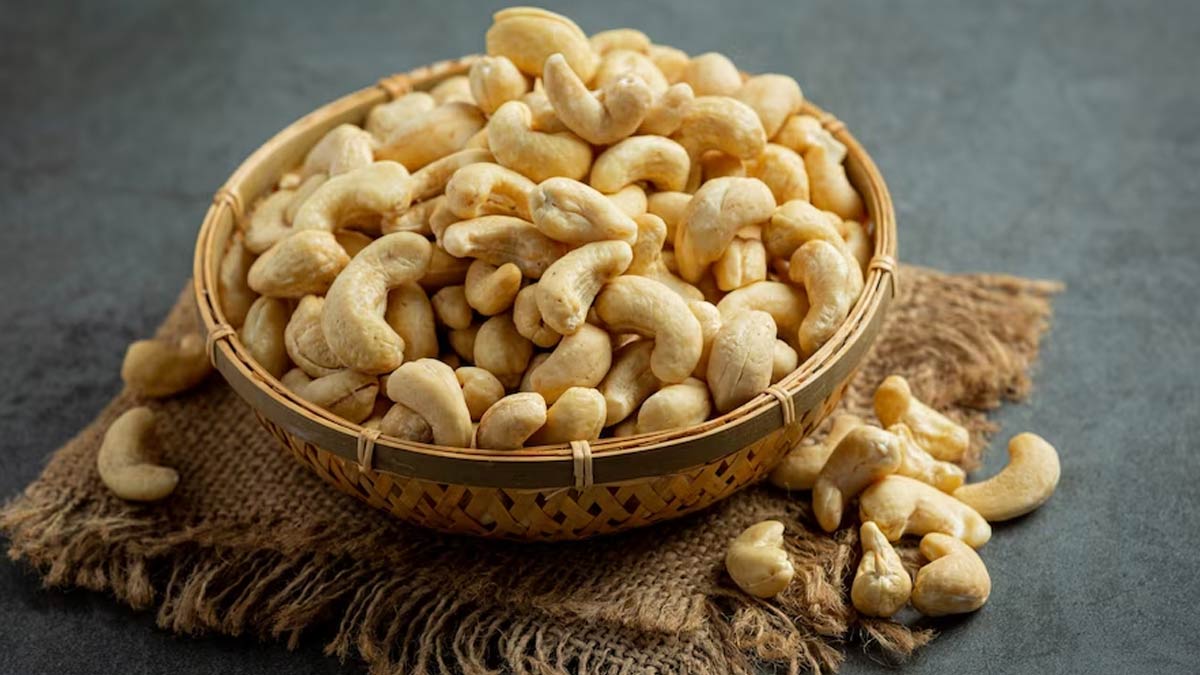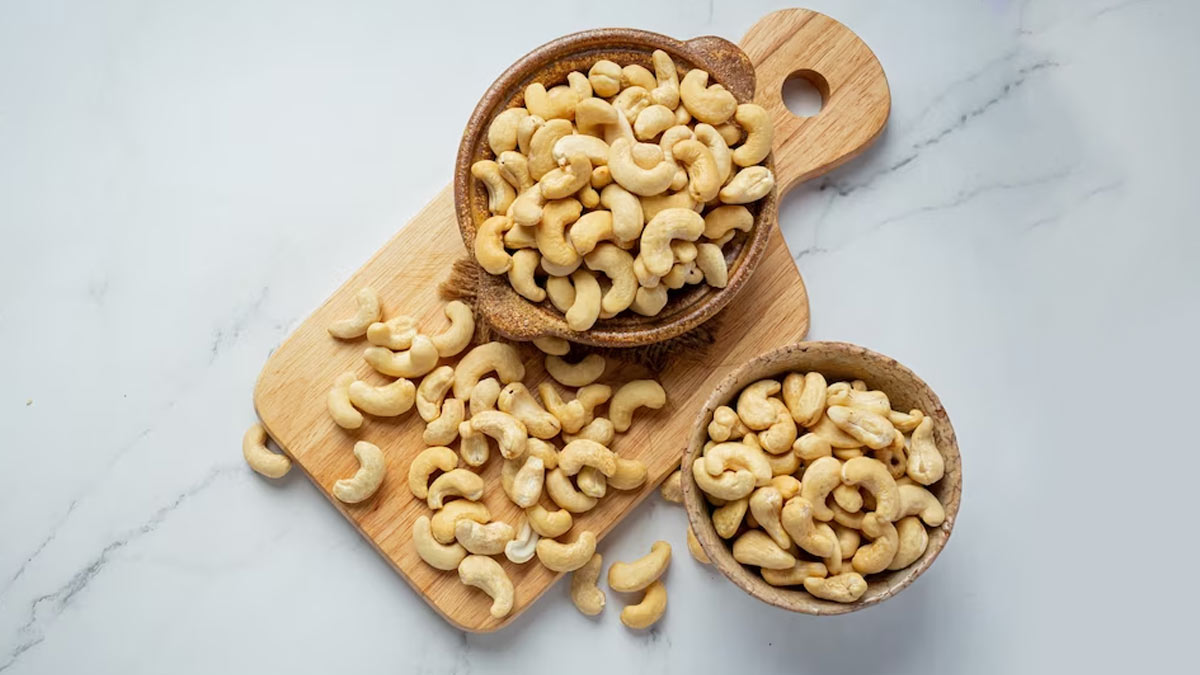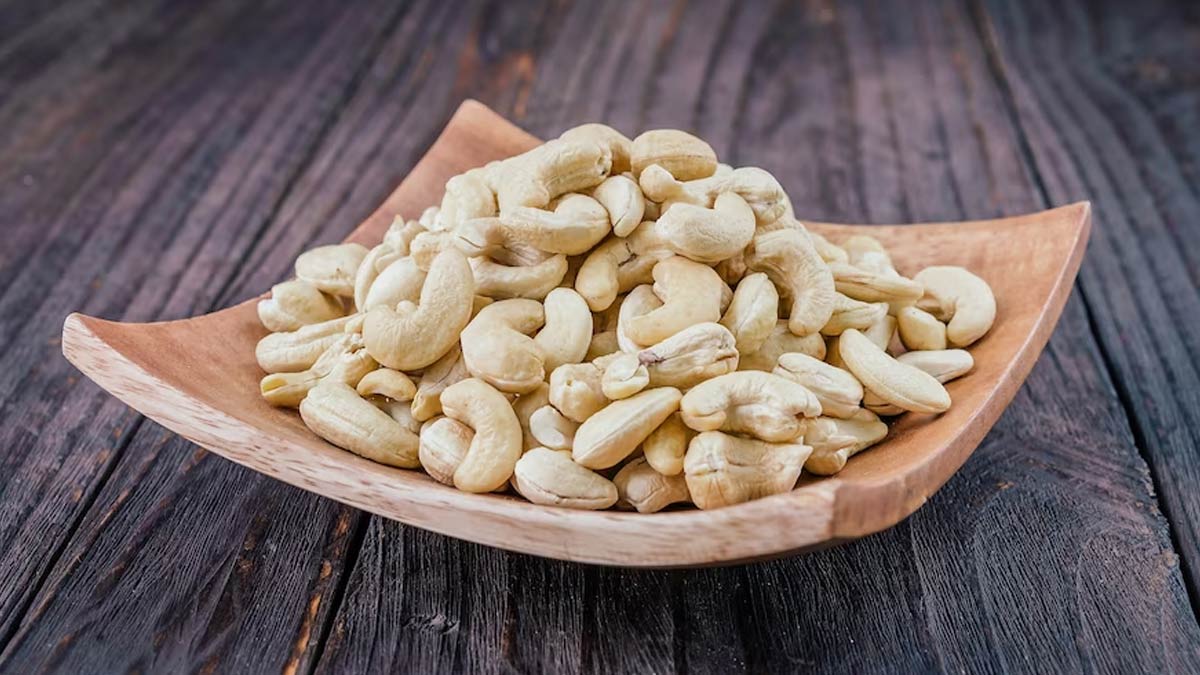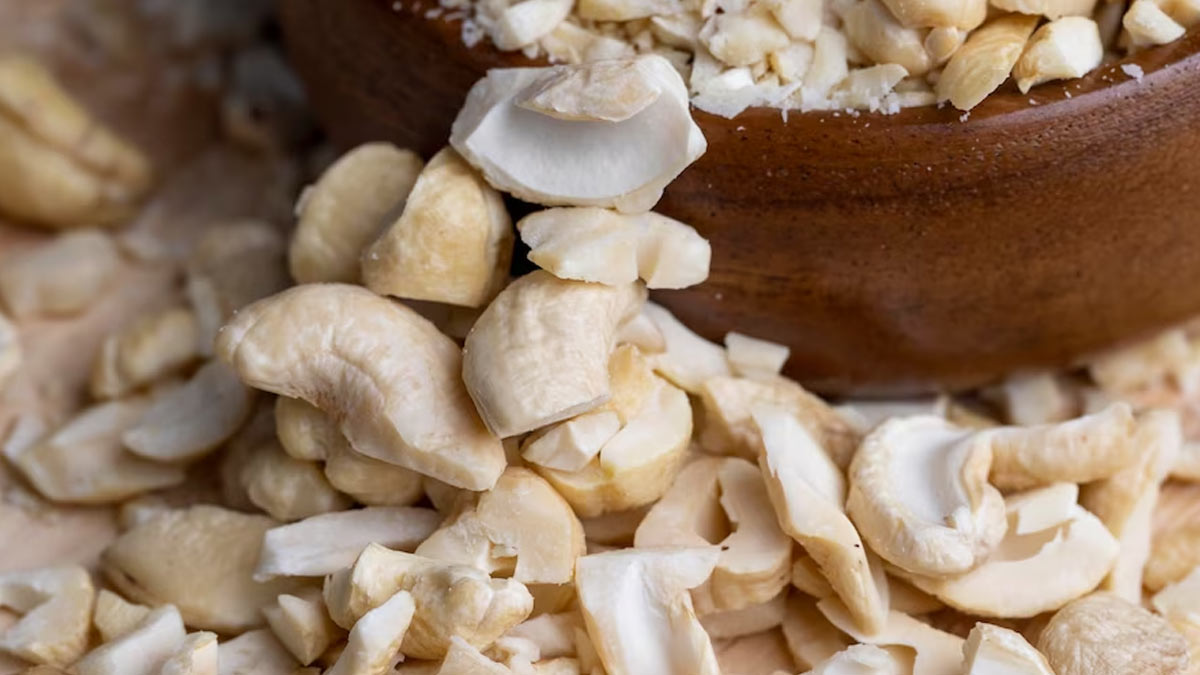

Cashews are superfoods that are nutrient-packed and extremely beneficial for the body. The nutty and buttery seeds (not nuts) grow inside the cashew fruit, which is also known as a drupe. It has a creamy texture and is often used in both sweet and savoury dishes, especially in Indian kitchens. The downside about cashews is that they are very high in calories. Experts often suggest having it in moderation as excessive intake can lead to side effects. In an interaction with the OnlyMyHealth team, Anupama Menon, Certified Nutritionist and Lifestyle Coach, Bengaluru and Mumbai, shares harmful effects of eating too many cashews and mentions the right amount that should be consumed.
Also Read: 5 Surprising Health Benefits Of Cashew Nuts And Ways To Consume It
Calories Content In Cashews

According to Menon, cashews are nutrient-dense and energy-rich, primarily due to their fat content.
“A 1-ounce (28-gram) serving of cashews contains around 157 calories,” she says, adding, “These calories mainly come from healthy fats, particularly monounsaturated and polyunsaturated fats, which contribute to heart health and provide sustained energy.”
A study published in the Journal of Nutrition found that cashew nut consumption increases High-Density Lipoprotein (HDL) cholesterol, which is said to improve cardiovascular health, and reduces systolic pressure. An NIH-funded study called the Systolic Blood Pressure Intervention Trial (SPRINT) found that lowering systolic blood pressure to less than 120 in adults aged 50 and older significantly lowered the risk of Cardiovascular Disease (CVD) and death.
Why You Shouldn’t Overeat Cashews

While cashews offer several health benefits, eating too many of them can lead to certain side effects. These include:
Weight gain: Due to their high-calorie content, consuming excessive amounts of cashews regularly can contribute to weight gain.
Digestive issues: Cashews, like other nuts, are rich in dietary fibre. While fibre is beneficial for digestion, consuming too many cashews in one sitting might lead to bloating, gas, or even diarrhoea, particularly if your digestive system isn’t used to high-fibre foods.
Allergic reactions: Some individuals may also experience allergic reactions to cashews. These reactions can range from mild symptoms like itching and hives to severe ones such as difficulty in breathing.
Also Read: Do You Know How Many Cashews You Should Eat In A Day? Dietician Reveals Side-Effects of Too Many Cashews
Oxalate content: Cashews contain oxalates, compounds that can contribute to kidney stone formation in susceptible individuals. Consuming too many oxalate-rich foods can increase the risk of developing kidney stones over time. According to a study published in the Journal Frontiers in Medicine, more than 80% of kidney stones are calcium oxalate stones.
Omega-6 fatty acids: While cashews provide healthy fats, they also contain omega-6 fatty acids. An excessive intake of omega-6 fatty acids can lead to an imbalance, potentially contributing to inflammation and other health issues.
Daily Recommended Intake

The appropriate amount of cashews to consume in a day depends on various factors such as age, activity level, overall diet, and health goals, says Menon.
“Generally, a small handful of cashews (about15 grams) can be a reasonable portion,” she says, adding, “Incorporating this into your diet can provide a satisfying snack or add a delightful crunch to salads, yoghurt, or stir-fries.”
However, it’s essential to be mindful of portion sizes, especially if you’re aiming to manage your weight and reduce fat, the nutritionist concludes.
اكتشاف المزيد من ينبوع المعرفة
اشترك للحصول على أحدث التدوينات المرسلة إلى بريدك الإلكتروني.
